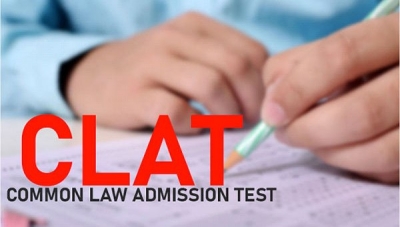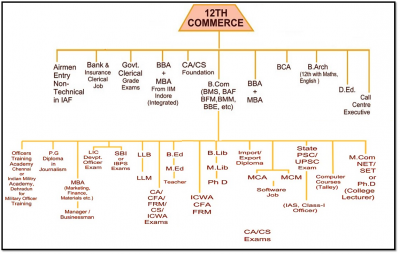
India has come a long way since its independence. The economy has increased tremendously. There is no doubt that the number of commerce courses have increased as well. More than 2 lakh students applied for commerce courses in the past year. The new GST plans put up by the government have not only been giving more importance to commercial studies but it has also given rise to different new programmes.
Commerce courses have always been coveted by people who just want to make a lot of money. However, after some years, a few quit the career because they could not find any job satisfaction. This is because a number of them joined the career for the wrong reasons. Yes, most of the commerce courses are money-making courses but if your personality suits a career with much more exposure or a career that is outgoing and much more than a career that requires you to work 9-5 in an office sitting in front of a computer, you will never get satisfaction, and may quit the career looking for a new one. Hence, when you choose any career in commerce, remember to choose it only if you are genuinely interested in it.
C.A. se Hatke!
Chattered Accountancy is one of the most profitable courses among the commerce courses. Many of the students who choose commerce first choose it because CA is their end goal. However, many join it because they do not know other alternates. Here are the few alternate careers to CA:
Actuarial Science: Actuarial Science is a discipline that assesses financial risks in the insurance and finance fields, using mathematical and statistical methods. Actuarial science applies the mathematics of probability and statistics to define, analyse, and solve the financial implications of uncertain future events. In order to pursue it you will have to take Commerce with Maths, after which you have multiple options. They are B.Sc. in Actuarial Science, Bachelors in Accounting and Finance (BAF), after which you could pursue an MBA or Masters in Actuarial Finances.
Banking: Everyone knows what banking is. Working in a bank in various capacities has been a prestigious career for many years. In order to have a career in banking you have to take commerce and a bachelor's degree in either B.Com, or BAF post which you could either take your Bank PO exam or SBI/RBI exam or simply pursue an MBA in Finance.
Business Administration: If you want to be part of building and growing an organization or business, Business Administration is for you. You could be part of marketing or sales for the business, or the day to day operation in the organization or even hire and sustain employees. You could pursue it by doing a Bachelors in Business Administration after which you can pursue Masters in it and specialize in any field you might be interested in.
Company Secretary: A company secretary is responsible for the smooth functioning of administration of the organization. They have their responsibilities in the financial and legal functions of the organization. In order to be a company secretary you will have to finish your 12th in commerce followed by a course in company secretary from the Institute of Company Secretaries of India.
Economics: Economics is the social science that studies how people interact with value; in particular production, distribution, and consumption of goods and services. As a career you could either teach economics or conduct research on a topic. To become an economist, you will have to take up economics in either Arts or Commerce in 11th and 12th, followed by a Bachelor's in Arts/ in Economics, then a Masters in the same and then a Ph.D. in Economics.
Finance Management: Financial Management refers to the strategic planning, organizing, directing, and controlling of financial undertakings in an organisation or an institute. It also includes applying management principles to the financial assets of an organisation. You could also apply these principals to manage the personal finances of individuals who are looking for insurance options and investment management.
Once you are done with commerce in 11th and 12th you have three options; Bachelor's in Commerce (B. Com), Bachelor's in Accounting and Finances (B.A.F) or Bachelor's in Financial Management (B.F.M), followed by any of those courses you can pursue an MBA in Finances.
Forensic Accounting: As a forensic accountant, you will be working in the Indian Revenue Services (IRS). You will be tasked with protecting people from tax and other financial frauds. You will also be tasked at making sure people obey the laws of the country and manage their finances in accordance with these laws. In order to have career in the IRS, you have to take up Commerce in 11th and 12th followed by a Bachelor's in any of the commerce courses (B.Com, BAF, BFM, BBA). Once you are 21 years of age you can give your IRS exams.
Human Resource Management (Payroll): As a Human Resource Manager you will be in charge of hiring employees and sustaining them in the organization. In the Payroll department, you will be in charge of managing the employees' salaries including other finance-related issues of the employee which include their provident fund and employee taxes. In order to have career as an HR you need to purse commerce in 11th and 12th followed by either B. Com. or BBA and then an MBA specialising in Human Resources.
Yes, Commerce is all about the money; however, patience is another very important aspect. Choose Commerce only if you are a person who is comfortable with working indoors for long hours and if you're good at Maths.
Credit : Darryl D'Souza (The Teenager Today)
Picture Credit : Google








